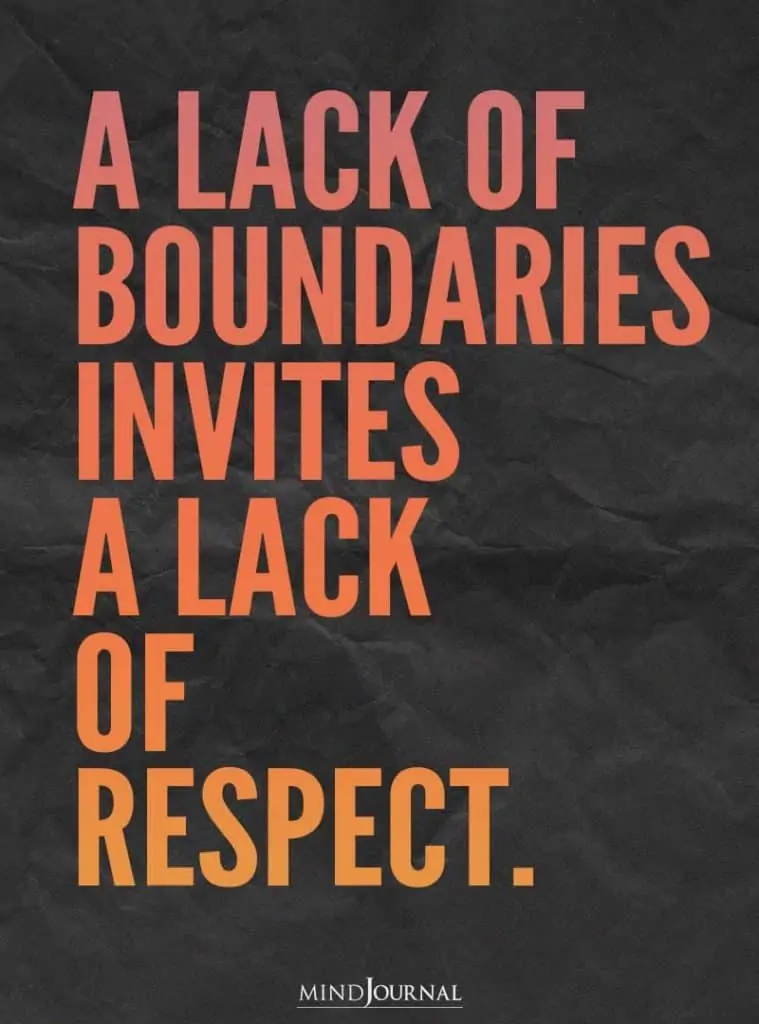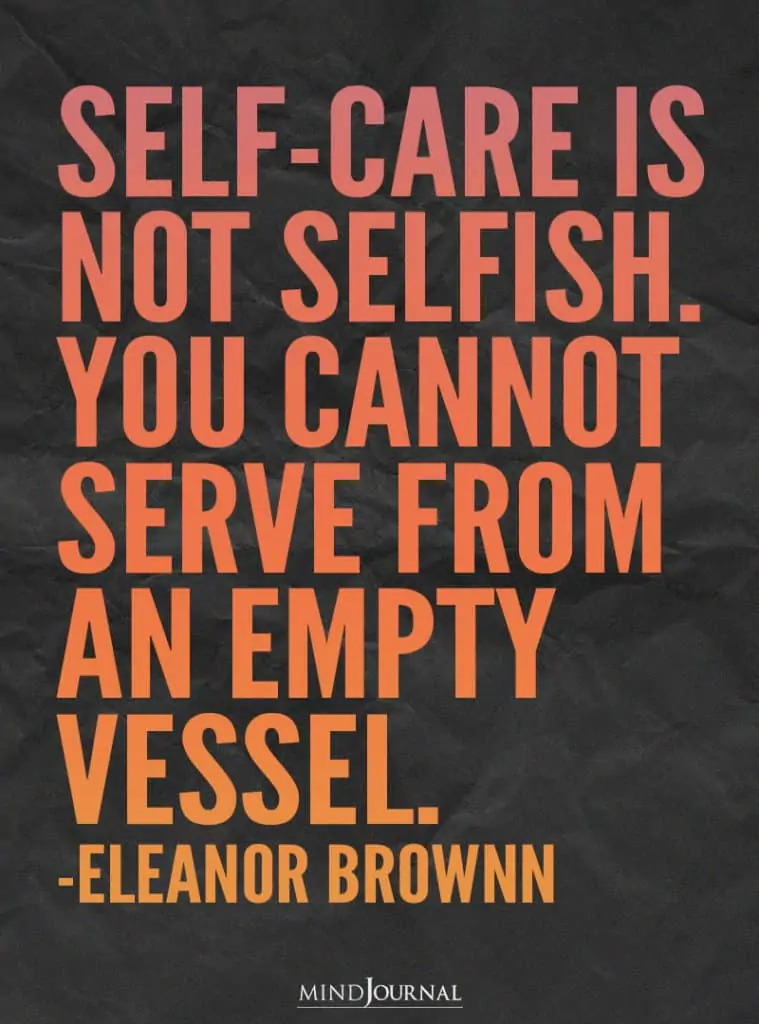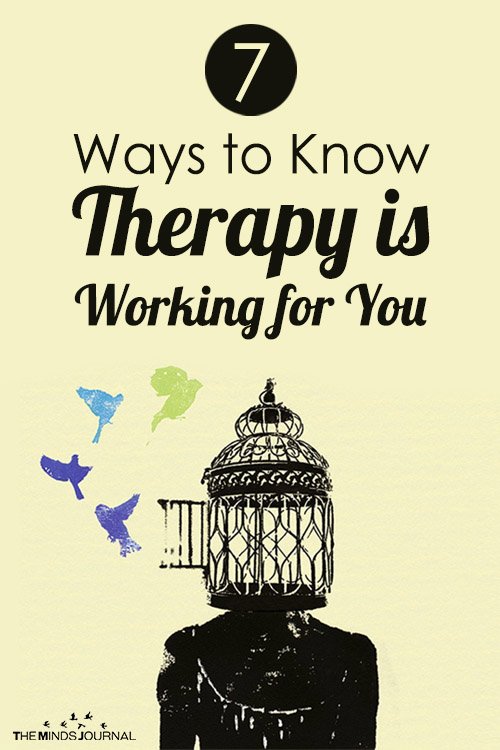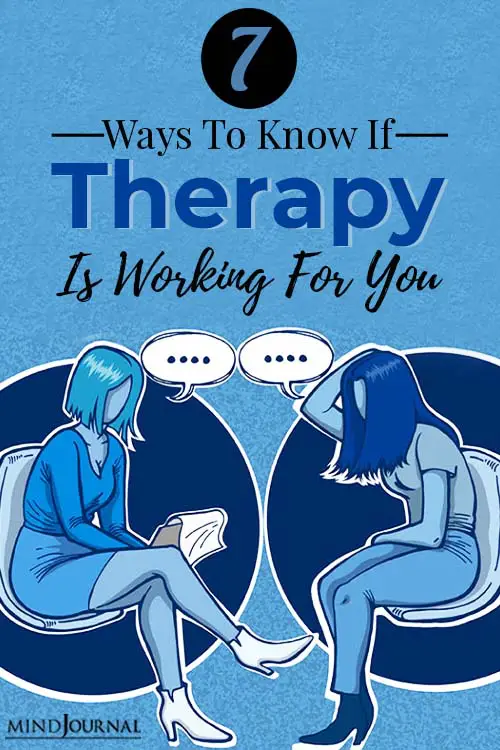To navigate our thoughts, to understand ourselves better we often resort to therapy. But how do we know if it’s working for us or not?
A really long time ago, when I was not even ten, I heard of therapy for the first time, you know in that passing sense, like how they talk of doctors and recoveries. It was in the context of a neighbor who was known to have frequent outbursts.
As is in the way of a child to first believe what they hear, I heard what I heard and believed that whatever this “therapy” was, would “cure” the neighbor alright.
Until I learnt that therapy does not cure; therapy “heals”. In my own tryst with therapy, going through it and reading about it, I also realized that therapy can sometimes not do what it’s meant to do.
But the million dollar question here is – how does one know therapy is working? The question is a fair one to ask, even if you inherently like your therapist and appreciate the way they work.
Read 11 Signs You Need To Talk To A Therapist
In my experience, a couple of things seemed to be misleading.
1. The pace at which you proceed in therapy. I remember wanting to work through multiple things and sometimes not knowing if I was done with one process to start with another. I would then question all of it – if I was with the right therapist, if I was deluding myself, if my process seemed bright but would actually come to nothing. I don’t have to tell you how such doubt can make up for rough days.
2. How do you draw a line between all the good things you expect the journey to bring and where you are really on it? Expectation versus reality can be a sore point, especially if you’ve entered the process knowing a fair bit about yourself.

Moving forward though, as I learnt to relax and give in more and more, I figured there were real-time signs that I was on the right track.
Here’s a broad outline of what I found from my own experience.
1. YOU FEEL SAFE
One of the primary pillars of therapy is “safety”. As much as it is about the confidentiality outlined outright and the way the therapist makes you feel in the very first session, “safety” also has to do with your “gut feel”.
As you go through therapy across several sessions, this will hopefully become clearer. The sense that you’re in the right place – where you feel “held’, where you wordlessly receive complete acceptance, where you don’t feel threatened no matter how intense or emotionally amplified your own story looks or sounds like.
2. YOU (RE)DISCOVER YOUR STRENGTHS
As we grow up and grow into our adult selves, we keep garnering qualities that come to our aid. Some of us can think on our feet, some of us can talk really well, some of us know how to survive on very little. In short, we all have inner resources that can help us not just tide by, but also thrive given the right circumstances.
Trauma can make people lose sight of this side of themselves. It happened to me and it happens to a whole lot of people.
However, if you’re in the kind of therapy that is working in your favor, along with the wounds you’ll soon be able to access the part of yourself that can reintegrate you as a functional and worthy human being.
Read 21 different ways to do art therapy and put your thoughts in order
3. YOU SEE CHANGES
One surefire way of knowing therapy is working is to actually see changes take place.
Now on this one I’ve had several debates with people.
Some consider changes valid only if they manifest somehow, in behavior, across interactions.
I hold a slightly different point of view.
In my opinion, a change is anything that makes you experience the world differently. Also, internal shifts happen before change in external behavior.
So, look out for how you feel. Take stock of how you are able to process day to day events, specifically those events that can potentially trigger you. Observe if you’re less anxious and are able to sleep better.
Such changes, little as they might be at the start, add up in time.
4. YOU LEARN HEALTHY BOUNDARIES

In an ideal world, everybody would do what they wanted to do and no one would get hurt.
In reality though, that’s never how it plays out. Many of our emotional, psychological and psycho-somatic issues stem from poor boundary definitions.
That pattern of not being able to say no, that pattern where you extend help to people even if you’re suffering yourself, that pattern where people doormat you and you keep quiet. You see how a lot of root causes actually grow out of that one seed cause – poor boundaries.
Therapy can often help people improve this side to their engagement with themselves and the world.
And if it does, steadily and increasingly, you know you’re on the right path.
Read Gestalt Therapy: 5 Popular Techniques That Encourage Healing and Personal Growth
5. YOU UNDERSTAND SELF-CARE

As soon as you become more aware of where to draw the line in relationships and other kinds of engagement with the world, the aspect of self-care naturally shifts as well.
When therapy is going well for you, you’ll see that your own health – mental, physical, emotional, spiritual – becomes topmost priority.
In this state, you’ll take more steps to keep your basic well-being, which includes food, sleep, and exercise, in place. With therapy going right, you’d want to take out time for you, even if you had very little time to spare.
6. YOU TAKE RESPONSIBILITY
I remember the time before I went in for therapy, I’d often feel a kind of powerlessness I still struggle to explain in words. While in therapy, I observed how I wasn’t able to see certain parts of my life as choices. Instead, I was looking to others for support or anticipating a change of circumstance to come as welcome relief. I didn’t realise it then that this behavioral pattern subtly meant that I was giving away both power and responsibility to someone else and something else.
When therapy started showing results, I noticed how I was able to take responsibility for my own choices and also take responsibility for my actions and the words I spoke.
Read 21 Different Art Therapy Exercises For Different Emotions
7. YOU TAKE CALCULATED RISKS
Taking up from where I left off about healthier boundaries and increased awareness about self-care, therapy when effective also enables you to take calculated risks.
I will give the example of a friend here who traveled to Bhutan two months after they had a bitter breakup. In a short time, they were able to find a way to take a break from work and a join a teaching position there for three weeks.
One might say this isn’t risk enough, but given the kind of person this particular friend is, this was sudden yet also fairly well thought-out. To their own self-admittance, therapy had created a sense of freedom in them that they were then able to make use of.
Therapy is no magic pill. It isn’t some glorious happening that sweeps people off their feet.
It works for some and it doesn’t for others. A number of different factors come together to make therapy work, including the fit between client and therapist, the therapist’s ability to negotiate the client’s situation and the client’s own readiness and commitment.
If you are in therapy at the time of reading this, I hope it is giving you what you need. If it isn’t, please remember that it’s likely other possibilities are waiting out there.










Leave a Reply
You must be logged in to post a comment.